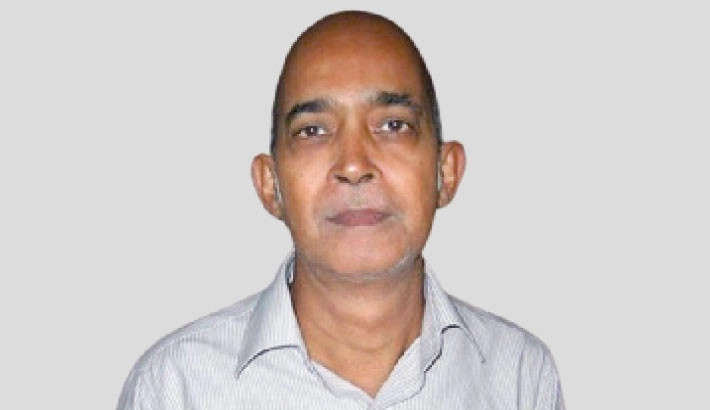
The adage of a political cat with nine lives did not come true in the case of Delhi Chief Minister Arvind Kejriwal’s arrest in accusation of money laundering. He ignored eight summonses issued by anti-money laundering agency Enforcement Directorate and was held soon after the ninth summons.
From an anti-corruption crusader to the chief minister of Delhi and his arrest on the charge of graft— Aam Aadmi Party (AAP) founder and Delhi Chief Minister Arvind Kejriwal’s 13-year dalliance with politics sums up the turbulent road of a maverick man of Indian politics. Kejriwal has been a key figure in Irony abounds in Indian politics.
This is once again borne out by the fact that 55-year-old Kejriwal, an Indian Institute of Technology graduate and a former Indian Revenue Officer, shot into limelight riding piggyback on Gandhian Anna Hazare’s anti-corruption movement against the then Congress government at the Centre in 2011, but today finds himself behind the bars trying to shake off graft allegations.
When Kejriwal headed the first AAP government in Delhi in 2013 on the plank of transparency and graft-free governance, it lasted just 49 days because he resigned after failing to pass a law on setting up an anti-corruption ombudsman (Jan Lokpal) in the assembly. In the run-up to his resignation, Kejriwal had staged a sit-in protest along with his partymen, something unusual for a sitting chief minister to do.
Kejriwal’s political career was born out of Hazare’s ‘India Against Corruption’ movement in 2011 which resonated across India with the demand for Jan Lokpal Bill to appoint an anti-corruption ombudsman.
A year later, Kejriwal, along with some of his close associates, founded AAP on October 2, the birth anniversary of India’s Father of the Nation Mahatma Gandhi. The party made its electoral debut and tasted success mainly on the planks of corruption-free rule and social welfare schemes focusing on day-to-day issues like water, free electricity, and affordable health and education.
In his electoral debut in 2013, Kejriwal challenged sitting Delhi Chief Minister Sheila Dikshit of Congress in the New Delhi constituency and defeated her by nearly 22,000 votes.
However, two years down the line, in the run-up to the 2015 Delhi assembly elections, Kejriwal apologised for quitting the first time and promised not to repeat the “mistake”.
It worked and the 2015 assembly polls saw AAP bagging 67 out of 70 seats. This bucked the countrywide Lok Sabha election trend when BJP was on the crest of Narendra Modi wave after its massive win in the Lok Sabha elections and Modi became Prime Minister. The same story was repeated when the BJP returned to power at the Centre in the 2019 Lok Sabha poll with a bigger majority and AAP swept Delhi assembly elections.
Within 12 years of its existence, Kejriwal’s AAP became the third largest national party after BJP and Congress. Like any other opposition chief minister in an Indian state, Kejriwal’s politics was marked by relentless standoff with the Modi government over issues related to governance with the matter even reaching the Supreme Court.
Kejriwal’s arrest casts a shadow over AAP’s prospects in coming parliamentary elections. In recent years, Kejriwal sought to spread his wings beyond Delhi particularly in Punjab, Gujarat and Goa. The party met with major success only in Punjab where it won power in Punjab assembly poll dethroning Congress there.
AAP is already battling the absence of its top leadership such as Manish Sisodia and Satyender Jain, both of whom were already arrested in the same case as Kejriwal, from campaigning and governance in Delhi. It also has the potential to cloud AAP’s future with the assembly polls in Delhi on the horizon.
In this year’s Lok Sabha elections, AAP is going to contest on four seats in Delhi and on two in Gujarat after reaching a seat-sharing deal with Congress in both states. Kejriwal is undoubtedly the star campaigner of AAP but not beyond Delhi and Punjab. His absence could mean an uncertain road ahead for the party in Delhi and Punjab.
Another area where AAP might be hit by Kejriwal’s arrest is governance. Although he does not hold any portfolio, he is the final authority in policy matters. Legal experts agree there is no bar under the law on Kejriwal remaining chief minister even after his arrest and he has not yet resigned from the post. AAP maintains he will continue as chief minister and if need be, he will run the government from jail. That is easier said than done.
The arrest of Kejriwal has already united the loosely-crafted opposition alliance whose delegation met the Election Commission seeking its intervention in ensuring a level-playing field in the coming national elections. It is doubtful if EC has any role in a case relating to alleged corruption. Conviction in the case and imprisonment of not less than two years will disqualify Kejriwal from being chief minister and contesting future polls for six years. But that is still a long way off.
It is possible that Kejriwal’s arrest might bring a sympathy factor in favour of AAP in coming elections, including fresh Delhi assembly poll which is due in May. But then voters of Delhi have so far voted differently in Lok Sabha and assembly polls. While AAP has swept 2015 and 2019 assembly polls, his party failed to win a single of the seven Lok Sabha seats in India’s capital city in 2015 and 2019. The counter view is why did Kejriwal choose to ignore the nine summonses by ED for joining the investigation into the allegations against him?
____________________________________
The writer is a veteran Indian journalist

